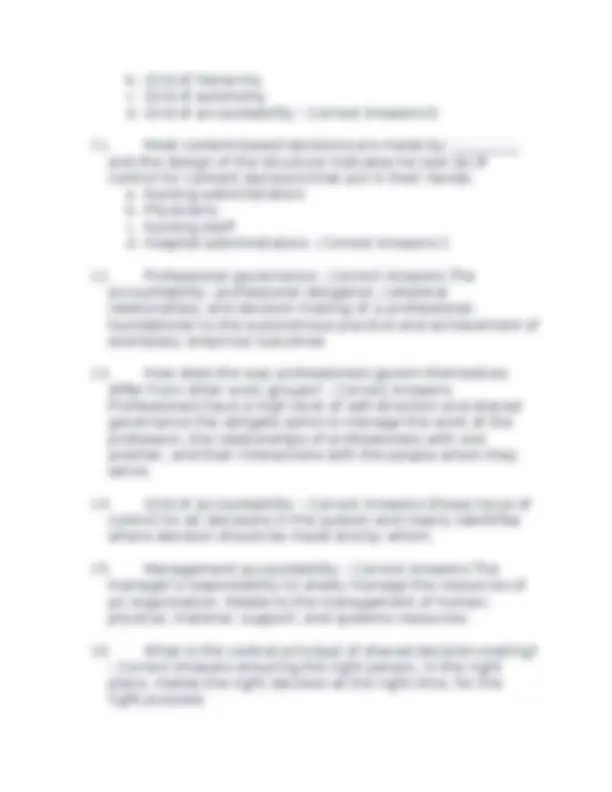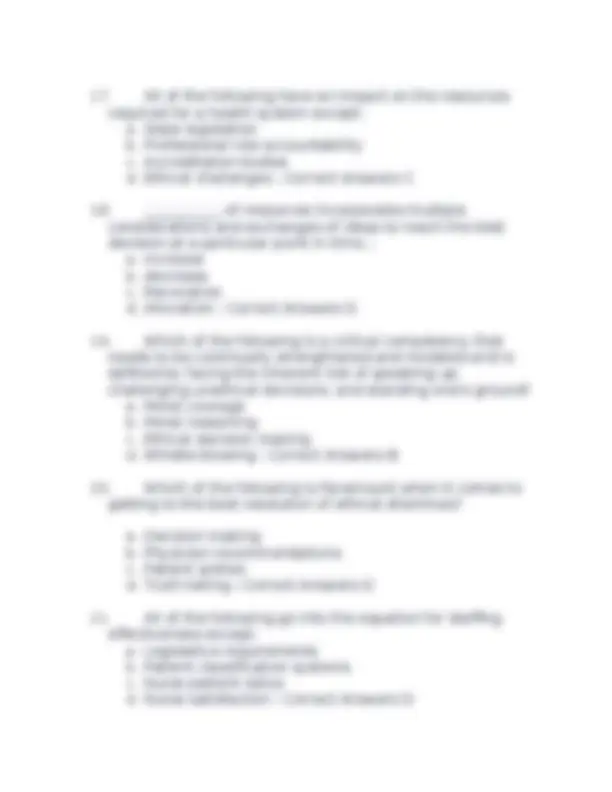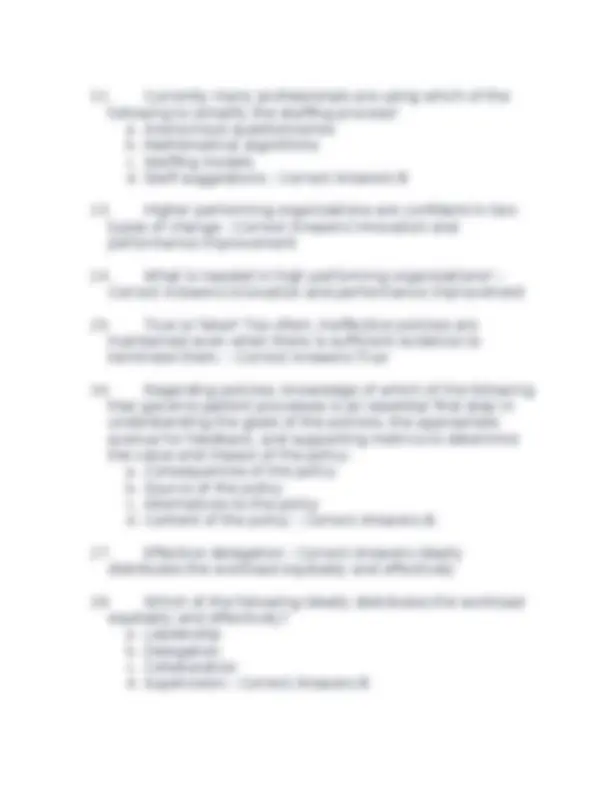





Study with the several resources on Docsity

Earn points by helping other students or get them with a premium plan


Prepare for your exams
Study with the several resources on Docsity

Earn points to download
Earn points by helping other students or get them with a premium plan
Community
Ask the community for help and clear up your study doubts
Discover the best universities in your country according to Docsity users
Free resources
Download our free guides on studying techniques, anxiety management strategies, and thesis advice from Docsity tutors
A comprehensive examination test with a revised marking scheme, focusing on various aspects of leadership in healthcare. Topics covered include anticipating future challenges, translating change, managing conflict, and professional governance. The test assesses the understanding of key concepts such as accountability, authority, and autonomy in the context of healthcare leadership.
Typology: Exams
1 / 6

This page cannot be seen from the preview
Don't miss anything!




c. User drivers d. Value drivers - Correct Answers D